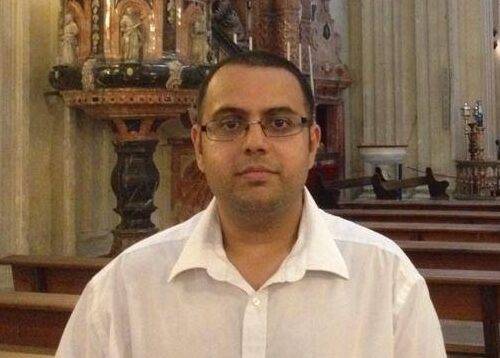In post-World War One Iraq, Britain was the occupying power. At a celebration of Prophet Muhammad’s birthday in 1920 (peace be upon him) in Baghdad’s Haydar-Khana Mosque, blind poet Muhammad Mahdi Al-Basir recited his poetry from the pulpit: “Let them bend their necks before you in submission… Until they acknowledge the corruption they have sown / renounce their sins and submit to your guidance.” Al-Basir’s performance made the British nervous; they feared “that ‘inflammatory’ poems might facilitate Sunni-Shi’i cooperation.” Their fears were made worse when a local informant told them, “Even I myself felt stirred to do something for the watan (fatherland).”
Al-Basir was part of a wave of Iraqi poets whose lives and work are explored in Kevin Jones’s book The Dangers of Poetry: Culture, Politics, and Revolution in Iraq. From the late 19th century onwards, Iraqi poetry was at the forefront of politics and national identity. Jones argues that poets emerged as public intellectuals and they played a pivotal role in popularising debates around religion, secularism, women’s rights, anti-imperialism, modernism and national identity.
The work of Muhammad Salih Bahr Al-Ulum “was more popular than the Communist Manifesto among young Marxists in Baghdad,” writes Jones. His communist, anti-elites poem Where Is My Right? facilitated the growing radicalisation against the ruling class in 1940s Iraq. Both Al-Ulum and Al-Basir are examples of what the author calls rebel poets, a group his book focuses on. “Rebel poetry was both the dominant cultural discourse and dangerous social practise of the long anticolonial struggle in Iraq.”
Two broad themes emerge from The Dangers of Poetry…: Iraq’s desires to explore modern ideas, the wish to restore the country to its former greatness. Focused mainly on Baghdad and Najaf, the book takes us on a tour from the Ottoman to the Ba’athist periods.
The End of Empire in the Gulf: From Trucial States to the United Arab Emirates
The poetic movements reveal a lot of the social tension of their times. One of the most interesting developments was in Najaf, which was transformed in the late Ottoman period from being a provincial town into a place where modernising ideas were being contested eagerly. A traditional Shia place of learning with a strong tradition of religious poetry, the youth of the city turned to poetic expression to explore ideas of constitutionalism, Darwinism and the Nahda [renaissance] movement taking hold across the Arab world. Yet there was tension for Najafis who wanted to become thought leaders in the Nahda movement, keen to embrace modern ways while preserving aspects of their traditions.
Neoclassical poetry took off in the city, which gave expression to these ideas. Indeed, poetry had a mission for young Najafis in the pre-World War One period. Muhammad Rida Al-Shabibi and Baqir Al-Shabibi raced to produce poems which explored themes of revivalism, viewing “poetry as a spiritual response of the East to the decedent materialism of the West.” Longing for modernity but critical of capitalism, Rida Al-Shabibi gave form to what would become the political inclinations of Najafi youth in his poem Al-Irfan and Al-Barq: “How many hungry souls now gaze upon merry faces / deprived of all nourishment among these gluttons?”
The sections on the Najafis in Jones’s book really spoke to me, especially the tension between enthusiasm for cosmopolitanism and the sense of being trapped in a provincial town; after being in lockdown for over a year this was painfully close to home. Ali Al-Sharqi best captured this in his poem A Poet in Prison: “What town is this whose prison contains me, confining me like the cage of the nightingale? … His heart is pulsing and his wings are flapping … He yearns for nothing but to embrace the dawn, the longing of the preacher for the congregation.”
The political inclination of the different poets evolved and varied, but during the British Mandate period the social dangers of poetry became apparent to the authorities. Some blamed poetry for causing the 1920 Great Revolt against the British in Iraq. While this is obviously an exaggeration, Iraq’s rebel poets were involved in organising anti-British protests. However, they were deeply divided over which direction the country should go. As Jones demonstrates, far from being a homogeneous movement, there was a lot of infighting and demonisation of each other.
The Dangers of Poetry… successfully challenges western notions of poetry being the preserve of the elite. I must confess that I needed little convincing that poetry is part of popular politics and the daily life of ordinary working people, as I have observed this in other Middle Eastern and South Asian communities. It is reminiscent of Shahab Ahmed’s What is Islam?: The Importance of Being Islamic, in which he argues that Islam and how people understood questions about how to be a Muslim and how to believe, was all shaped by popular poetry from the Balkans to Bengal.
It feels that the study of poetry is still marginalised among historians and political scientists, but what Kevin Jones shows, quite convincingly, is the central role played by poetry in Iraqi politics. It goes beyond literature and social function; we must view poems as part of the wider political context, rather than as a separate art form. This is ongoing and many of the themes explored apply to Iraq today, where the work of many of these poets is still recited, one of the many indications of popular dissatisfaction with the status quo. This is as good an endorsement of Jones’s book and its relevance as you could find.









